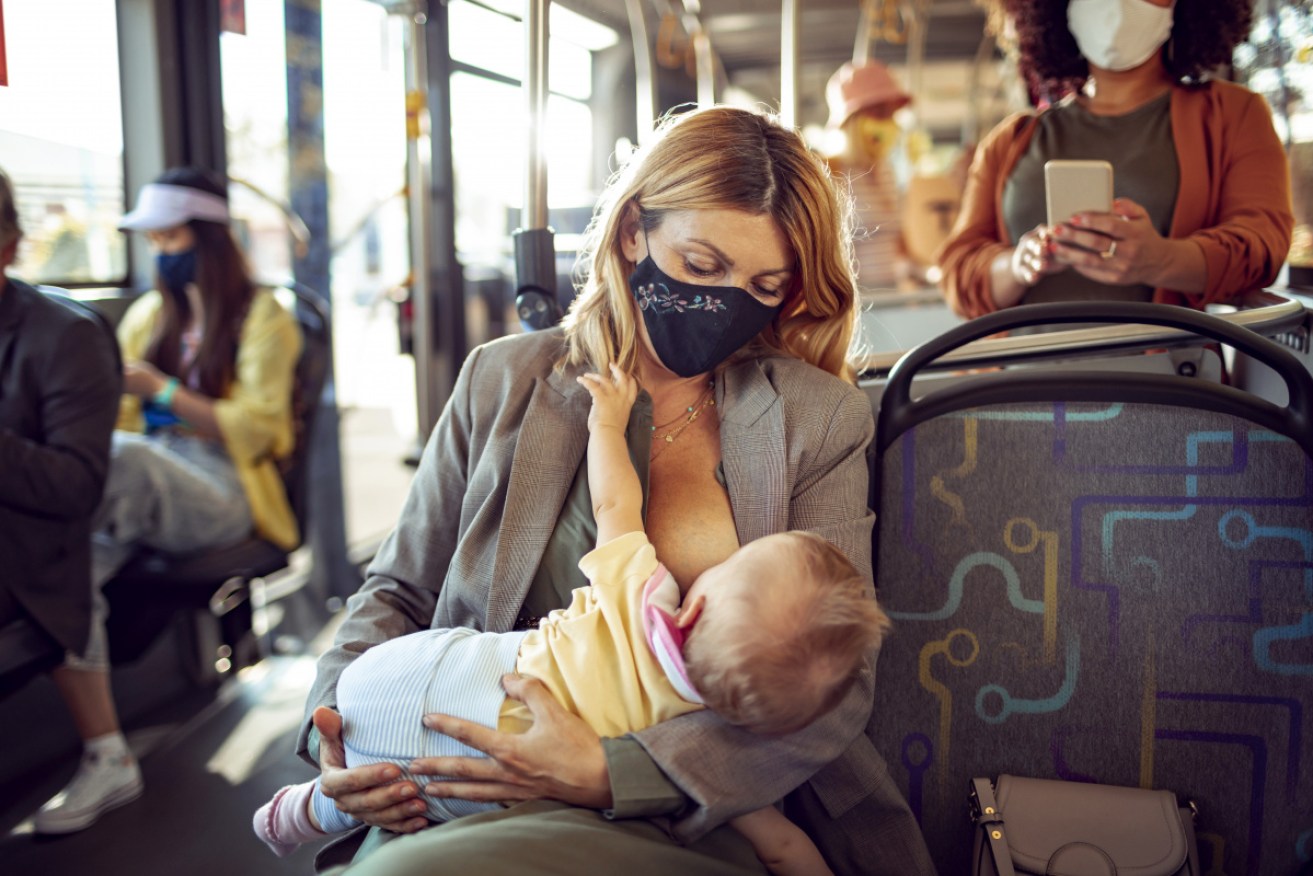Breast milk from vaccinated mothers may pass COVID-19 immunity to babies


The breast milk of lactating mothers vaccinated against COVID-19 contains a significant supply of antibodies. Photo: Getty
The breast milk of lactating mothers who are vaccinated against COVID-19 has been found to contain a “significant supply” of antibodies, a new study has confirmed.
This suggests that vaccinated mothers can pass on this immunity to their babies and help protect them against the illness.
The researchers from the University of Florida (UF) are now further investigating the likely possibility that newborn babies acquire what is called ‘passive immunity’ against COVID-19.
What’s passive immunity?
Passive immunity is acquired when a person is given antibodies to a disease rather than producing them through their immune system.
Newborn babies acquire passive immunity, against diseases such as whooping cough, when their mother is vaccinated during pregnancy.
In fact, the baby is first exposed to antibodies in utero, via the placenta, in the third trimester of pregnancy.
The Florida study is the latest to find that COVID-19 antibodies are passed on via breast milk. Here is another.
There’s now a widespread presumption on heath and medical blogs that antibodies in breast milk afford newborns the same protection from serious COVID-19 illness that a vaccine provides.
But the science isn’t quite there yet with this conclusion.
An “abundance of caution” has broadly underscored public health policy in the pandemic, and perhaps especially so in relation to newborns.
The ever-changing advice and ‘what we know for sure’
The advice for mothers of newborns and medical staff has chopped and changed from just about day one of the pandemic – just as it has for the broader community.
In some jurisdictions, including the US, mothers with confirmed or suspected COVID-19 were separated from their newborns.
Some hospitals continue to support this policy – regardless of there being good evidence to suggest that infected mothers could have vital skin-to-skin contact with their babies provided they strictly wore masks and followed hygiene protocols.
In June 2020, Australian researchers argued in The Conversation that separating mothers with COVID-19 from their newborns did more harm than good.
There was uncertainty over whether babies could become infected anyway. Until babies became infected. And now there’s concern that babies less than 12 months old might be at a higher risk of severe illness with COVID-19 than older children.
This was likely due “to their immature immune systems and smaller airways, which make them more likely to develop breathing issues with respiratory virus infections”, the Mayo Clinic advised.
So, the new question was: Would their immature immune systems develop antibodies?
In June, a UK hospital study found that infants “have relative protection from coronavirus because their bodies produce a strong immune response to it”.
But what about all these new fangled mRNA vaccines? Would they get passed on to babies through breast milk?
It was only two months ago that the Royal Australian College of General Practitioners reported that breast feeding by vaccinated mothers was safe.
This was based on a study of just seven women. The RACGP said the findings needed to be confirmed.
And now it appears that a vaccinated mother may be protecting her baby by passing on antibodies.
The new study
Dr Joseph Larkin III is senior author of the study and an associate professor in the UF department of microbiology and cell science.
He said: “Our findings show that vaccination results in a significant increase in antibodies against SARS-CoV-2 … in breast milk, suggesting that vaccinated mothers can pass on this immunity to their babies, something we are working to confirm in our ongoing research.”
The study was conducted between December 2020 and March 2021, when the Pfizer and Moderna vaccines first became available to healthcare workers.
The researchers recruited 21 lactating healthcare workers who had never contracted COVID-19.
The mothers’ breast milk and blood were sampled three times: Before vaccination, after the first dose, and after the second dose.
“We saw a robust antibody response in blood and breast milk after the second dose – about a hundred-fold increase compared with levels before vaccination,” said Lauren Stafford, a doctoral student in Dr Larkin’s lab.
These levels “were higher than those observed after natural infection with the virus”.
Questions remain. Will babies fed breast milk rich with antibodies develop their own protection against COVID-19? How long do the antibodies remain present in breast milk?
And how effective are they at neutralising the virus? This is yet to be established.








